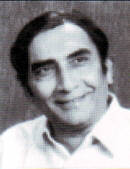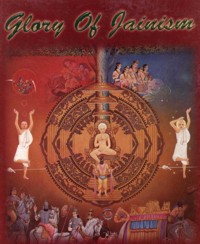Senapati Abhu
The huge Muslim army invaded Anhilpur Patan, the capital of Gujarat. King Bhimdev II, the last king of the Solanki empire, was away and people were worried as to who would protect them. The chief of the army was Abhu, a Jain Rajput, who was recently appointed on the post. Being new to the post, he was not in a position to provide leadership to the army. Moreover the army personnel were not in adequate number nor were they fully equipped to fight the invaders. The people and the administrators of the state were naturally worried. The queen understood the problem and decided to act, as the Muslim army was advancing towards the capital. She called Abhu and commanded him to lead the army into war and fight the enemy. Abhu gathered his men and inspired them to fight. He planned out the strategy to checkmate the enemy.
The next day morning the fight began. Abhu, the army chief, was deeply religious and performed pratikraman (ritualized confession) twice a day, once in the morning and then in the evening. It was evening and Abhu was worried. Where could he find a lonely spot for his pratikraman? It was not prudent to leave the field too. The army would be dispirited in the absence of its leader. Abhu was in a dilemma - on the one hand was the religious duty, on the other duty towards the people. He, then, sat on an elephant and began his pratikraman ceremony. He spoke the words, "If I have done some violence to some living organism...", and these words were heard by a soldier. He said to another soldier, "Look at our chief! What a non-violent act on the battlefield in the midst of killings! We fight and kill and he is busy muttering some words proclaiming non-violence. How can we expect such a weakling to show even an iota of bravery?" These words of the soldier reached the queen's ears. She was worried too but was helpless.
The next day in the morning, the battle began. Abhu, with renewed vigour, launched a fierce attack on the enemy formations. Heavy casualties were inflicted upon the enemy and finally it had to surrender. Abhu was victorious and the queen welcomed the victorious chief of the army. The queen, then, said to Abhu, "When the soldiers saw you performing pratikraman, they were disappointed and felt dispirited. I also was worried, but your unprecedented courage surprised us all." Abhu replied, "My vow of non-violence is a personal thing, a matter related to my soul. Protection of my state is my primary duty. For her (motherland's) protection I would not hesitate to commit violence. My body belongs to the nation and it must be used for that purpose. But the soul within me belongs to me and I would try to keep my soul and mind away from violence. That is how I observe my vow of non-violence." Everyone admired Abhu's patriotism and deep devotion to religion.
Devotion to religion and religious practices should go hand in hand. The same applies to knowledge and action. Success comes one's way when both combine. Pratikratnan is an important part of the life of a Jain layman. It is all about one's behaviour in daily life. It shows the path of knowing one's weaknesses or faults and getting rid of them. Pratikraman is a process of self-purification or purification of the soul. One whose soul is pure, untainted can only harbour true devotion and religious feelings. The rituals, if properly followed, are meant for self-purification, for purging one's self of undesirable elements. Senapati Abhu's life reflects his strict observance of religion and pursuance of the path of true religion.
 Dr. Kumarpal Desai
Dr. Kumarpal Desai

